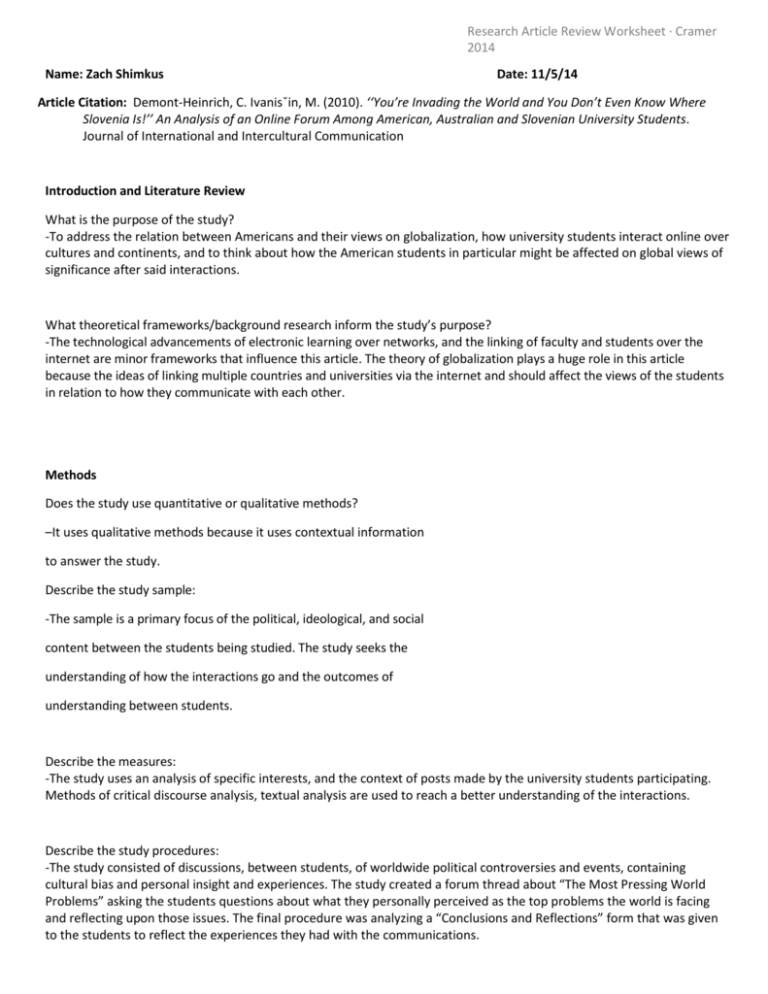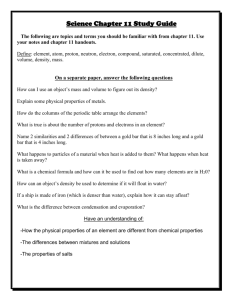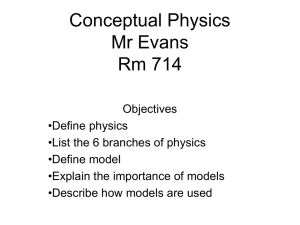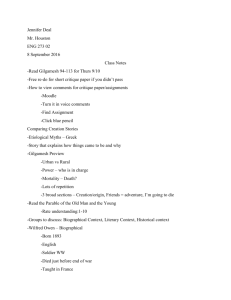Shimkus4_Research-Article-Review-Worksheet
advertisement

Research Article Review Worksheet ∙ Cramer 2014 Name: Zach Shimkus Date: 11/5/14 Article Citation: Demont-Heinrich, C. Ivanisˇin, M. (2010). ‘‘You’re Invading the World and You Don’t Even Know Where Slovenia Is!’’ An Analysis of an Online Forum Among American, Australian and Slovenian University Students. Journal of International and Intercultural Communication Introduction and Literature Review What is the purpose of the study? -To address the relation between Americans and their views on globalization, how university students interact online over cultures and continents, and to think about how the American students in particular might be affected on global views of significance after said interactions. What theoretical frameworks/background research inform the study’s purpose? -The technological advancements of electronic learning over networks, and the linking of faculty and students over the internet are minor frameworks that influence this article. The theory of globalization plays a huge role in this article because the ideas of linking multiple countries and universities via the internet and should affect the views of the students in relation to how they communicate with each other. Methods Does the study use quantitative or qualitative methods? –It uses qualitative methods because it uses contextual information to answer the study. Describe the study sample: -The sample is a primary focus of the political, ideological, and social content between the students being studied. The study seeks the understanding of how the interactions go and the outcomes of understanding between students. Describe the measures: -The study uses an analysis of specific interests, and the context of posts made by the university students participating. Methods of critical discourse analysis, textual analysis are used to reach a better understanding of the interactions. Describe the study procedures: -The study consisted of discussions, between students, of worldwide political controversies and events, containing cultural bias and personal insight and experiences. The study created a forum thread about “The Most Pressing World Problems” asking the students questions about what they personally perceived as the top problems the world is facing and reflecting upon those issues. The final procedure was analyzing a “Conclusions and Reflections” form that was given to the students to reflect the experiences they had with the communications. Results and Discussion What are the primary findings of the study? -Students that participated in the study were inspired to have more awareness globally about world topics as well as individual people around the world. The students reported a better awareness of specific countries because of the involvement of the students living in said countries. Social bias of one’s own country as well as other countries was altered because of the interactions held. The study helped people become less self-oriented and more other-oriented in viewing global affairs. What are the implications of the findings on the theoretical frameworks/background research discussed in the introduction? -The implications of these theoretical frameworks are that the world does indeed view the USA as a “role model” and that this does affect how people view American’s and influences the communication between people of other countries. Understanding these affects between communications is crucial to understanding the ways people communication with American’s on global affairs. In addition not all countries have a bias of our country and not having a pre-formed view changes how topics flow as well. This information can be used to better the communication between cultures. What are the limitations of the study? -The main limitations are that only three countries were studied and only six universities. The ways countries interact could be more accurate based on the more countries studied. What ideas/directions for future research are recommended by the study authors? -The future research of these topics is heading towards more research in more countries to understand and better more global forms. New versions of interactive engagements and ways of communication studies are being committed to additional research ideas as well.






